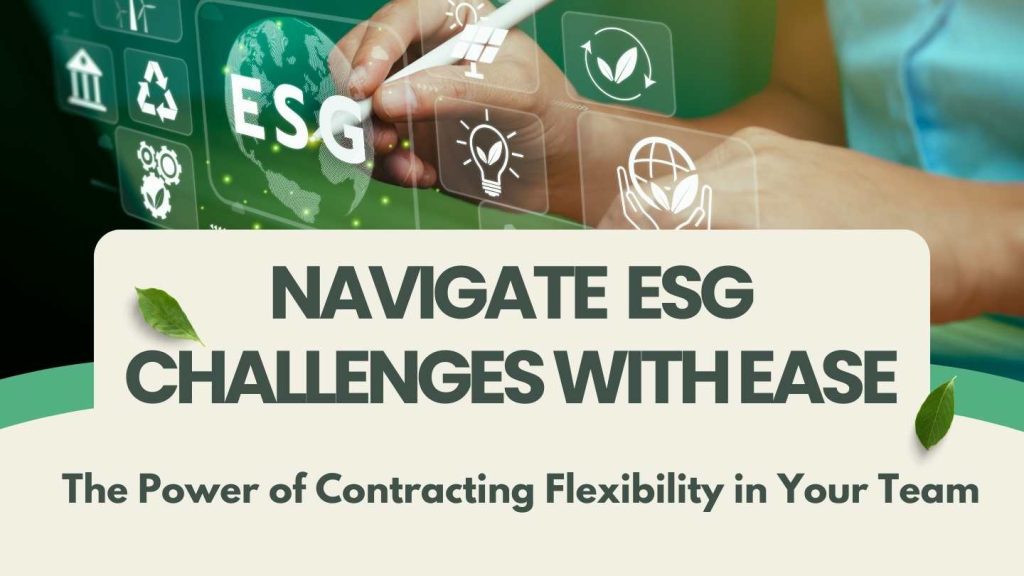
The role of a sustainability professional in the current market is changing rapidly. New legislation increases in workload, new tools and technology all add additional learning on top of doing the day job. Keeping moreover is a challenge. Many people reading this will relate to these challenges and know that they are often a small department (sometimes a department of one) that is expected to punch above its weight in terms of productivity.
When we also add into this mix the increasing level of rigour being applied to ESG Reporting and the financial and time cost of being audited, it is easy to understand why Sustainability teams are reaching for the phone to their manager and asking for extra help.
The ESG labour market is starting to mature and with that maturity often comes the emergency of skills in the form of freelance and contract staff. A lot of companies have relied on consultancies in recent years, and they have filled an important gap in the market. But with the emergence of contract staff, ESG teams now have another string to their bow to be able to tackle some of those tricky one of projects or deal with peaks in workload (did somebody say CSRD?).
So, if this sounds like you. Here are just some of the reasons you might like to think about hiring on a contract or flexible basis before going through a lengthy recruitment process for your next hire that you may not need to do:
· Access to Specialist Skills: Sustainability and ESG are evolving fields with niche areas of expertise, such as carbon accounting, sustainable finance, or regulatory compliance. Hiring contract specialists allows you to tap into specific expertise that you might not have in house or need after a particular project or period is complete.
· Adding Resources Without Extra Headcount: Engaging contract or flexible staff enables you to bring in additional resources without increasing your permanent headcount. This helps you meet your project demands while maintaining leaner operational structures, which can be important for budgeting or managing long-term commitments.
· Handling Peaks of Work During Busy Periods: Technology can and does help but sustainability reporting, audits, or compliance checks often require extra workforce during specific periods or for a fixed amount of time. Contract staff can help absorb these peaks in workload, ensuring that these and other critical deadlines are met without overburdening you or the rest of your core team.
· Cost Efficiency and Flexibility: Contract staff can often be more cost-effective than hiring full-time employees, especially when the need for specific skills is temporary, or project based. You can scale resources up or down according to your current needs, avoiding long-term payroll costs.
· Speed to hire: A contractor will often join you with the experience you need and require minimal or no training to get up to speed. This means that you can sometimes “over-hire” for skill but not have to worry about long term retention. This means that you can accelerate your time to hire and start to tackle your project (or problem) quickly.
· Fresh Perspectives and Innovation: Bringing in external specialists can introduce innovative ideas, technologies, and best practices from other companies or sectors. This can help spark innovation and improvement in a company’s sustainability strategies. This will support you in staying competitive and forward-thinking.
If you are considering how, you might tackle an upcoming deadline or project and would like to explore the option of augmenting your current ESG or Sustainability team but do not want to fully outsource the activity, why not explore using a contract member of staff? Contact the ESG REC team on +44 (0)208 1242716 or at info@esgrec.com


